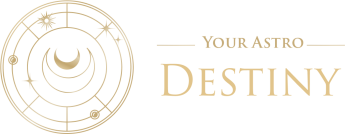Understanding the Delicate Balance: Archetypal Astrology and Free Will
The world of astrology is a vast and intriguing one, featuring multiple concepts and approaches. One of these theories, which stands out in its unique perspective, is archetypal astrology. Mostly, it intersects the domains of astrology and psychology, and closely aligns with the works of pioneer psychologist Carl Jung and his disciple, renowned astrologer Richard Tarnas. Their philosophies establish a connection between the individual’s psyche and their astrological alignments. Despite primarily focusing on predetermined astrological phenomena, archetypal astrology equally respects the aspect of free will.
Archetypal astrology identifies cosmos as a reflection of the internal processes of the human psyche. It perceives celestial bodies and their positions not as causative, but as symbolic representations of events and behaviors. These archetypal patterns, derived from planetary alignments, act as blueprints which guide the life experiences and psychological tendencies of individuals.
In this context, one main component is the ‘archetype.’ Jung postulated that archetypes are fundamental, universal themes and symbols present in the collective unconscious of all humans. According to him, our conscious behavior patterns are invariably colored by these archetypes. On that premise, each planet in archetypal astrology signifies a unique archetype or dual set of archetypes, thus embodying distinct qualities and patterns of behavior that an individual can manifest.
However, link archetypal patterns with the notion of predestination raises a significant question – where does this leave our free will? This particular topic has been a considerable point of debate among astrologers and psychologists alike, mainly due to the apparent contradiction between the deterministic understanding of astrology and the human tenet of free will.
According to archetypal astrology, while celestial configurations might outline the typology of experiences, they do not determine the actual outcome. This is where free will comes into play. A credible way to reconcile these two seemingly opposing aspects is by viewing archetypes not as absolute predictors of events, but more as a pool of possibilities or a spectrum of potentials.
For instance, the planet Mars’ archetype is often associated with courage, aggression, and war. An individual experiencing a Mars transit may encounter circumstances that may bring forth feelings of anger or courage. Nevertheless, the archetype does not dictate the individual’s response. They can choose to act out in destructive aggression (a negative potential of Mars) or utilize it to showcase bravery (a positive potential of Mars). Thus, free will’s importance is established in this scope of choice.
Archetypal astrology, hence, embraces this coexistence of determinism and free agency. Proponents like Tarnas advocate that humans, armed with consciousness and free will, have the power to interact creatively with their given archetypal patterns.
To summarize, archetypal astrology does not dismiss free will but rather, integrates it within the framework of the archetypal universal patterns. The key lies in the interpretation and understanding of the astrological archetypes – they outline the broad theme, but the individual, aware and equipped with their free will, pens down the specifics of the story. Through self-awareness and consciousness, one can harness these planetary influences rather than be controlled by them, thereby crafting their unique life narrative within the cosmic play.
In the grand cosmos-human life interplay, archetypal astrology offers an insightful perspective. It beautifully interweaves predestined archetypal influences with the individual’s conscious choices, painting a complex but empowering picture of human existence.














